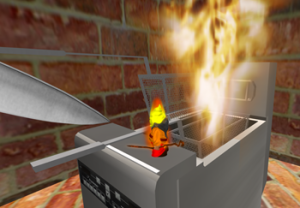In the introduction to his translation of Beowulf, Irish poet Seamus Heaney recalls his surprise when he learned the odd-looking Anglo-Saxon word þole (pronounced “thole”) wasn’t really alien:
I gradually realized that it was not strange at all, for it was the word that older and less educated people would have used in the country where I grew up. “They’ll just have to learn to thole,” my aunt would say about some family who had suffered an unforeseen bereavement. And now suddenly here was “thole” in the official textual world, mediated through the apparatus of a scholarly editon, a little bleeper to remind me that my aunt’s language was not just a self-enclosed family possession but an historical heritage, one that involved the journey þolian had made north into Scotland and then across into Ulster with the planters and then across from the planters to the locals who had originally spoken Irish and then farther across again when the Scots Irish emigrated to the American South in the eighteenth century. When I read in John Crowe Ransom the line “Sweet ladies, long may ye bloom, and toughly I hope ye may thole,” my heart lifted again, the world widened, something was furthered.
Learning and reading definitely widen and further one’s contact with the world. Literature, by making the strange familiar and the familiar strange, challenges us to see the world with new eyes. Recognizing an active past in our present world gives us a new dimension of life desperately needed in a live-for-the-moment consumerist society. And seeing one’s culture blossom in distant parts of the globe makes those faraway places seem a bit closer.
For more on the defining influence the Celts exerted on the South, check out Grady McWhiney’s Cracker Culture: Celtic Ways In The Old South.






